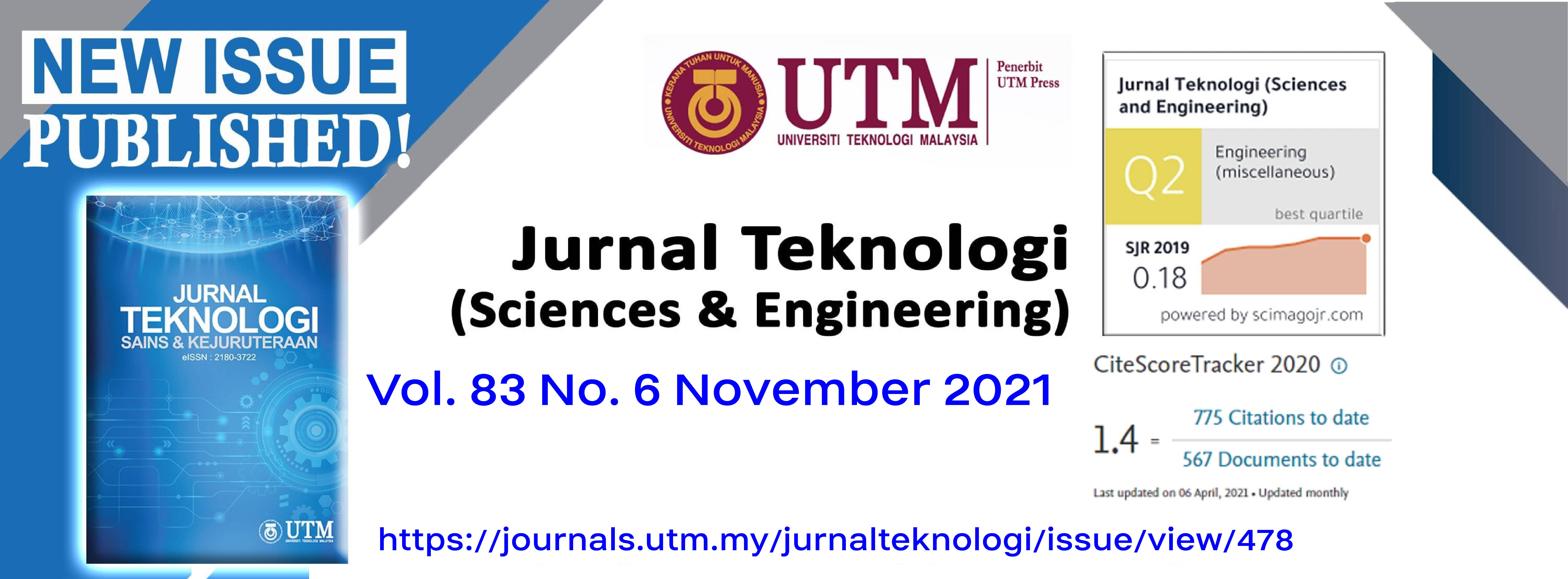CHEMICAL EPOXIDATION OF OLEIC ACID TO PRODUCE AB TYPE MONOMER FOR FATTY-ACID-BASED POLYESTER SYNTHESIS
DOI:
https://doi.org/10.11113/jurnalteknologi.v83.16912Keywords:
Oleic acid, fatty-acid-based polyester, chemical epoxidation, optimization, degradation kineticAbstract
Epoxides from vegetable oils are currently gaining more attention to replace petroleum-based monomers for polymer synthesis. As one of unsaturated fatty acids derived from vegetable oil, Oleic acid can be converted into epoxidized oleic acid by chemical epoxidation. Epoxidized oleic acid is a bifunctional monomer that has the potential to be used as raw material for fatty-acid-based polyester synthesis. This paper proposes the Taguchi-based optimization technique for in-situ epoxidation of oleic acid. The combining factors affecting the maximum yield were also determined to obtain a higher quality of epoxidized oleic acid in a relatively short time. Epoxidized oleic acid was characterized and tested for degradation. The characterization result showed the possibility of the polymerization reaction, and the kinetic study showed that the rate of epoxide degradation at room temperature follows second order with a reaction rate constant of2.7235 gr.mmol-1.day-1.
Downloads
Published
Issue
Section
License
Copyright of articles that appear in Jurnal Teknologi belongs exclusively to Penerbit Universiti Teknologi Malaysia (Penerbit UTM Press). This copyright covers the rights to reproduce the article, including reprints, electronic reproductions, or any other reproductions of similar nature.
















